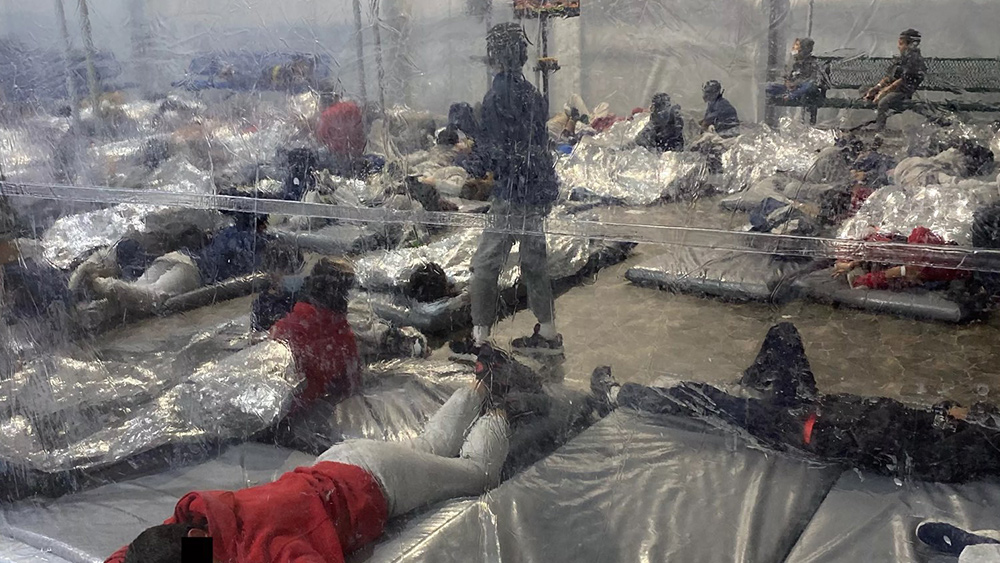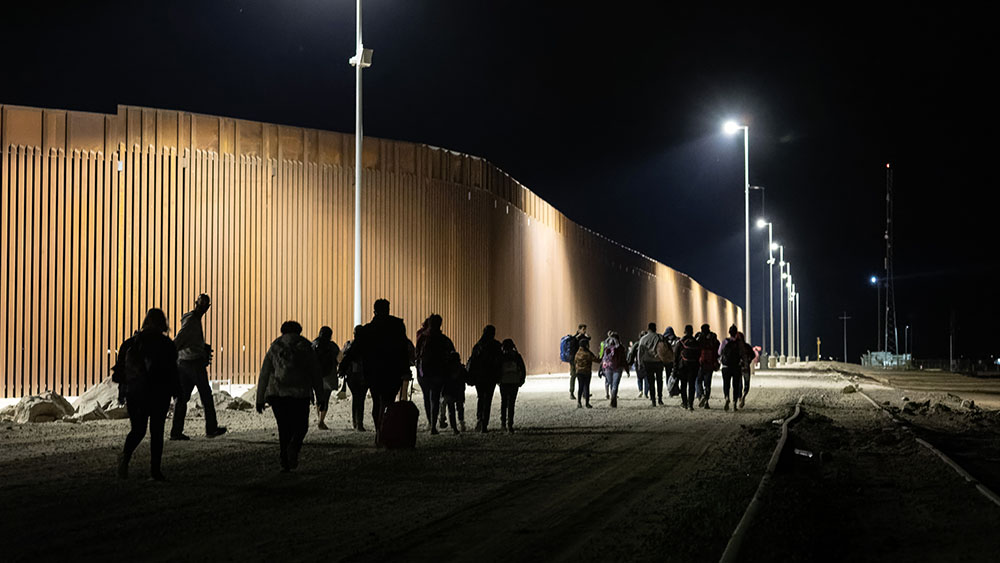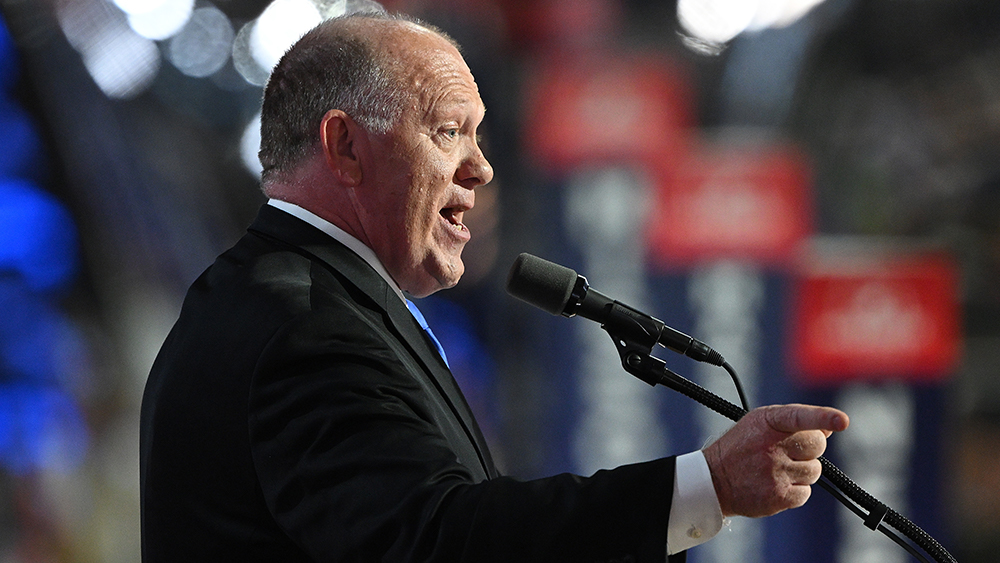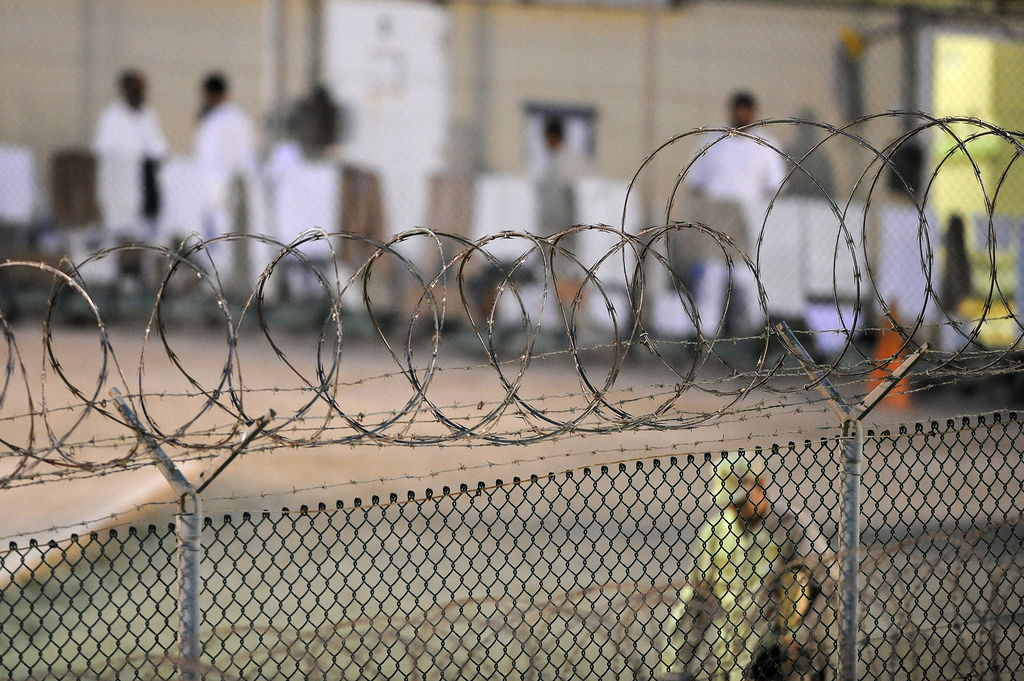Germany’s new migration policy: Dumping asylum seekers on Poland sparks controversy
02/20/2025 / By Willow Tohi

- Germany has signed an agreement with Poland to offload and expedite the deportation of migrants under the Dublin Regulation, sparking domestic and international controversy.
- The agreement establishes a Dublin Center in Eisenhüttenstadt, set to open on March 1, to process and deport migrants who have submitted asylum claims in other EU member states but are in Germany.
- The policy has faced criticism from Polish politicians and journalists, with concerns raised about Poland’s role in accepting deported asylum seekers from Germany.
- Germany’s new approach reflects a shift in its immigration policy, driven by recent security concerns and political pressure, moving away from its open-door policy of 2015-2016.
- The agreement raises questions about the future of the Schengen Area and the potential for increased border controls, with implications for both national and European politics.
In a move that has sparked both domestic and international controversy, Germany has signed an agreement to offload migrants to Poland, marking a significant shift in the country’s approach to illegal immigration. The deal, signed by German Interior Minister Nancy Faeser and Brandenburg Interior Minister Katrin Lange, aims to expedite the return of asylum seekers under the Dublin Regulation. The new policy has raised concerns about its implications for both Germany and Poland, as well as the broader European migration debate.
Germany tackles illegal immigration with new Dublin Center
The agreement, which was signed on Monday, focuses on the establishment of a Dublin Center in Eisenhüttenstadt, a town on the German-Polish border. The center, set to open on March 1, will serve as a hub for the rapid processing and deportation of migrants who have submitted asylum claims in other EU member states but have moved to Germany.
Minister Faeser emphasized the necessity of the new measures, stating, “Anyone who is not allowed to stay in Germany must leave our country. Our authorities will work closely together to ensure fast and effective procedures.” Brandenburg Interior Minister Katrin Lange echoed this sentiment, adding that the goal is to “accelerate the transfer procedures” of illegal migrants.
The decision to focus on returns to Poland is due to the strong bilateral relations between Brandenburg and Polish provinces. According to a press release from the German Ministry of the Interior, the Central Immigration Office of Brandenburg will coordinate closely with Polish authorities to ensure that all transfers take place within two weeks.
Polish opposition and government react
The agreement has not been met with universal approval. Polish journalist Aleksandra Fedorska expressed her outrage, stating, “I really don’t like it, I ask the prime minister to explain what this situation is.” Fedorska’s concerns are echoed by the national-conservative Law and Justice (PiS) party, which has criticized the Polish government for its willingness to accept deported asylum seekers from Germany.
Despite Prime Minister Donald Tusk’s repeated promises that Poland will not enact the EU migration pact, Olivier Bault from the Ordo Iuris Institute argues that this is a misconception. “Tusk must be aware that the Ukrainians who fled to Poland in 2022 and 2023 will have no impact on the migrant relocations set to begin next year,” Bault said.
Historical context and European implications
This new policy is not without historical precedent. Since 2015, the EU has struggled to find a cohesive approach to managing the influx of migrants, particularly those fleeing conflicts in the Middle East and Africa. The Dublin Regulation, a cornerstone of EU migration policy, stipulates that the first EU country in which an asylum seeker arrives is responsible for processing their claim. However, this system has been fraught with challenges, as countries like Italy and Greece, which serve as the primary points of entry, have struggled to manage the volume of arrivals.
Germany, under then-Chancellor Angela Merkel, initially adopted an open-door policy, welcoming over a million refugees in 2015-2016. However, the political landscape has shifted significantly, with rising concerns about national security and the integration of migrants. The recent attacks in Mannheim and Solingen, perpetrated by radicalized refugees, have further fueled calls for stricter immigration policies.
A shift in German policy
The current German government, led by Chancellor Olaf Scholz, has taken a more hardline stance on immigration. This includes the re-establishment of border controls, the deportation of Afghan refugees, and the reduction of welfare benefits for certain migrants. These measures have been met with a mixed response from EU partners, with some countries, like Poland and Hungary, expressing opposition, while others, like Denmark and Austria, have shown support.
European solidarity and the future of Schengen
The agreement with Poland raises questions about the future of the Schengen Area, which guarantees free movement within most EU member states. Countries like France and Greece have expressed concerns that reintroducing border controls could undermine the fundamental achievements of the EU. However, the European Commission, under President Ursula von der Leyen, has acknowledged the need for a more balanced approach to migration, including the possibility of “solidarity” payments to member states that opt out of receiving asylum seekers.
Conclusion
Germany’s decision to offload migrants to Poland is a clear indication of the growing political pressure to address illegal immigration. While the move may provide a short-term solution, it also highlights the broader challenges facing the EU in managing migration. As the German federal election approaches on February 23, the debate over immigration is likely to intensify, with far-reaching implications for both domestic and European politics.
The coming weeks will be crucial in determining whether this agreement can withstand the scrutiny of both the public and international observers. For now, the focus remains on ensuring that the process is conducted in a manner that respects international law and maintains the dignity of all involved parties.
Sources include:
Submit a correction >>
Tagged Under:
asylum seekers, big government, border security, Dublin Center, Germany, illegal immigration, invasion, migrants, national security, Open Borders, Poland
This article may contain statements that reflect the opinion of the author
RECENT NEWS & ARTICLES
COPYRIGHT © 2018 BORDERPATROL.NEWS
All content posted on this site is protected under Free Speech. BorderPatrol.news is not responsible for content written by contributing authors. The information on this site is provided for educational and entertainment purposes only. It is not intended as a substitute for professional advice of any kind. BorderPatrol.news assumes no responsibility for the use or misuse of this material. All trademarks, registered trademarks and service marks mentioned on this site are the property of their respective owners.



















